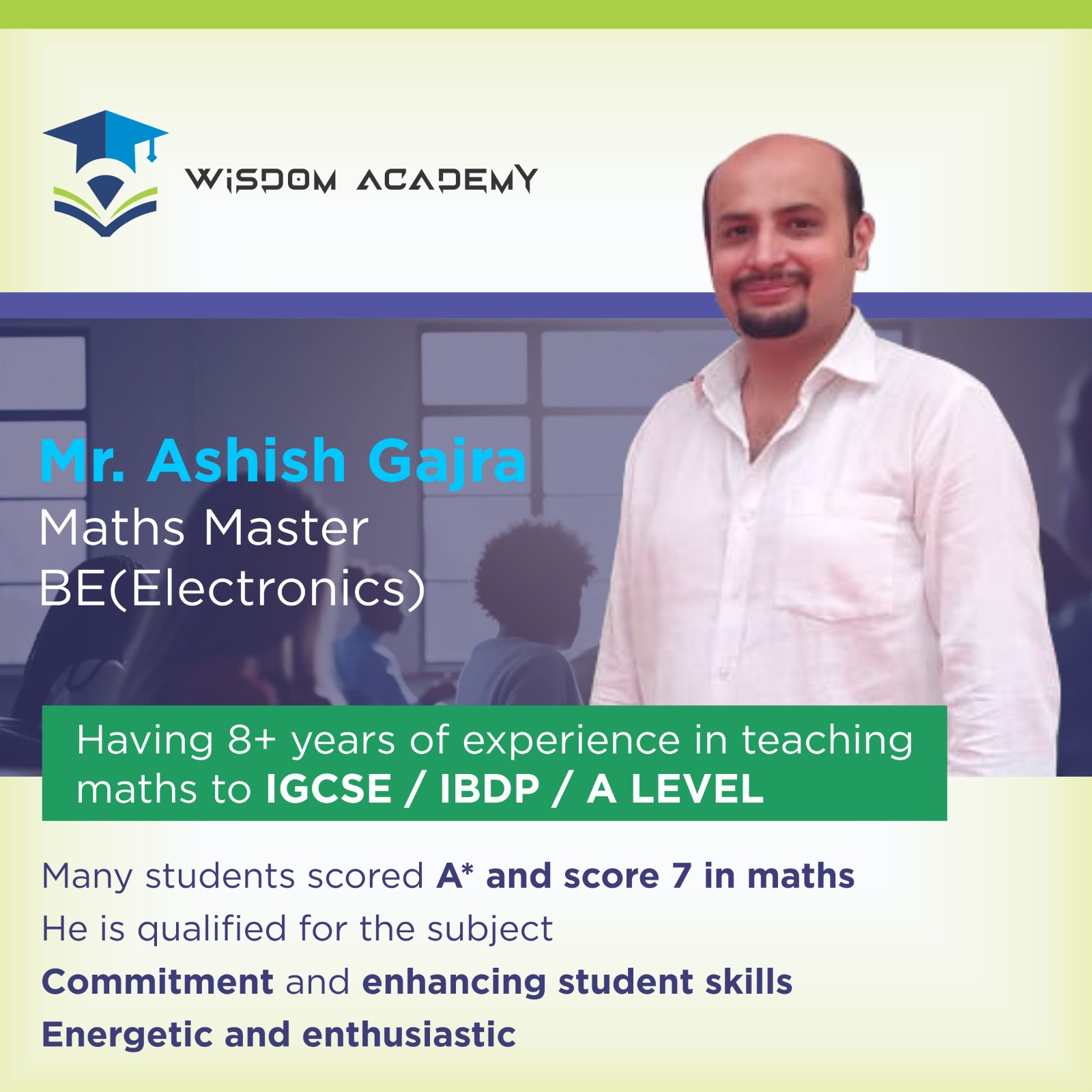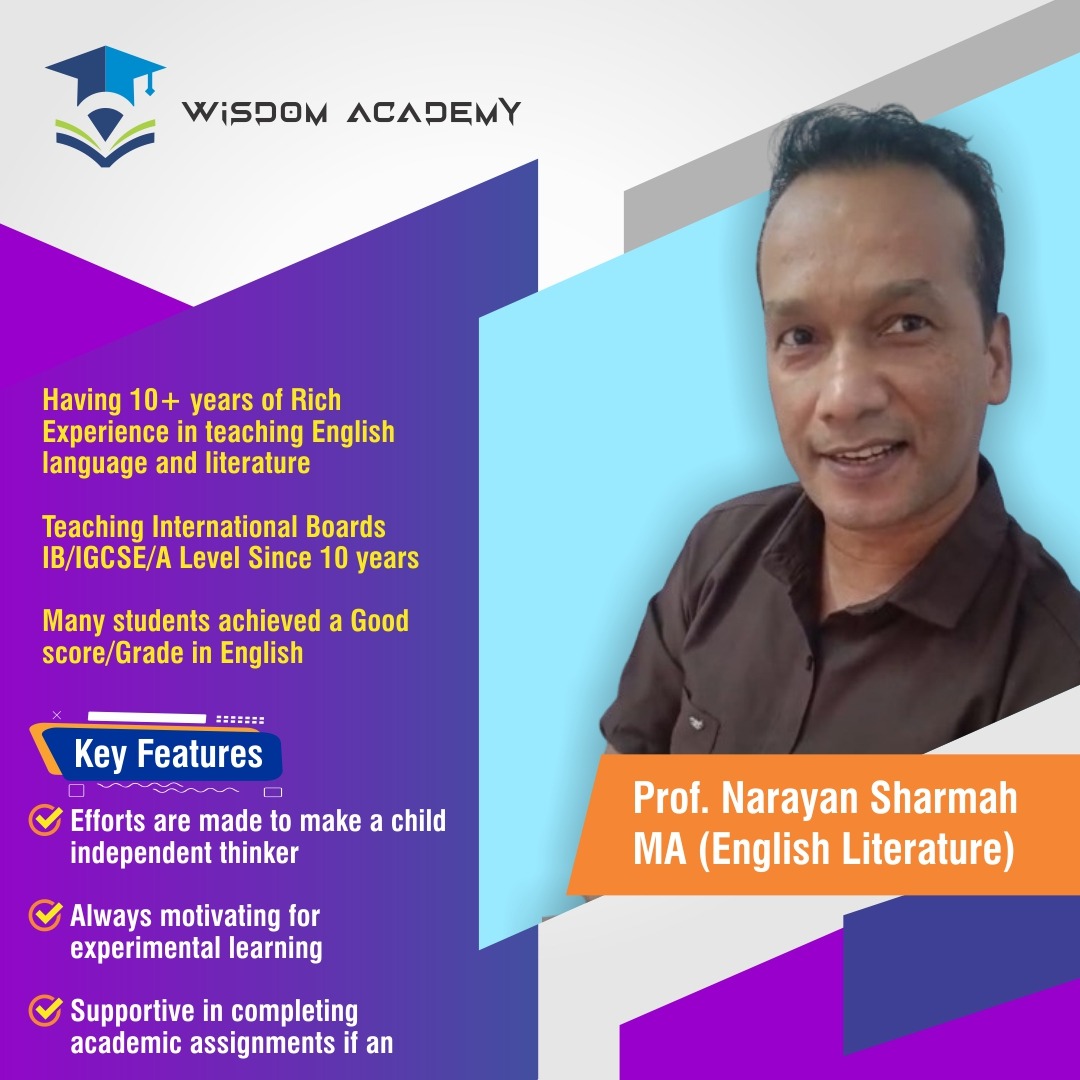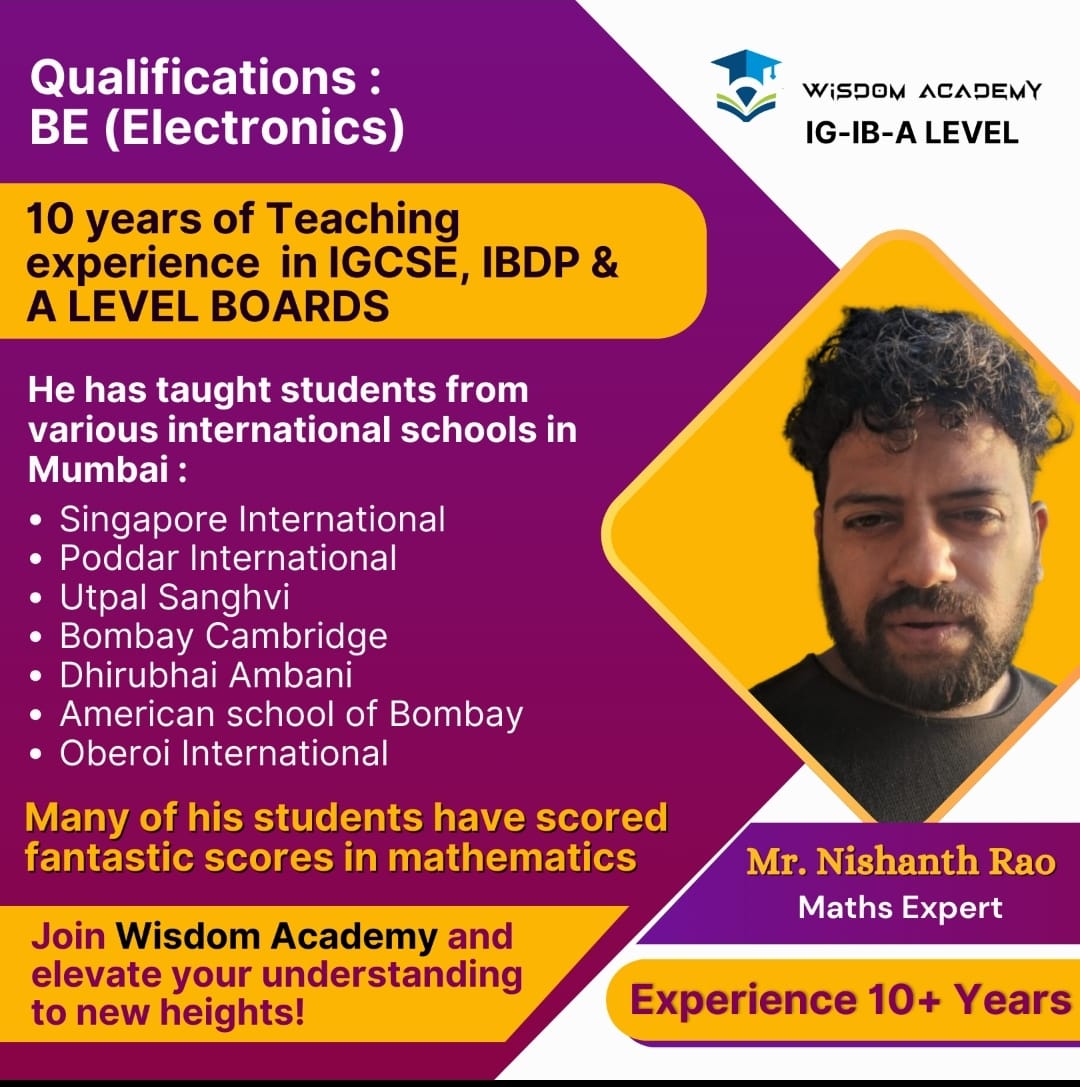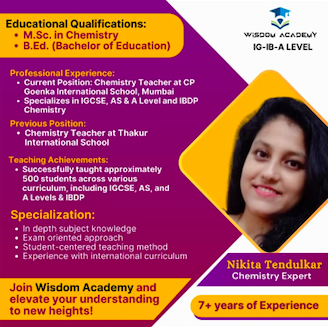
Name : Liston D’souza
May – June 2022
JV Parekh International School
Economics (HL) – Score 7,
Business Management (HL) – Score 7,
Biology (SL) – Score 6

May – June 2022
JV Parekh International School
Economics (HL) – Score 7,
Business Management (HL) – Score 7,
Biology (SL) – Score 6

May – June 2022
Singapore International School
Maths (HL) – Score 7,
Physics (HL) – Score 7,
Chemistry (SL) – Score 6

May – June 2022
Dr Pillai International School
Maths (HL) – Score 7,
Computer Science (SL) – Score 6,
Physics (HL) – Score 7,
Chemistry (SL) – Score 6

May – June 2022
JBCN International School
Physics (HL) – Score 6,
Economics (HL) – Score 6,
Chemistry (SL) – Score6

May June 2024
Poddar International School
Maths SL - Score 7
Economics HL- Score 7
BM HL - Score 7

May - June 2023
Singapore international School
Maths AI - (HL) - Score 7
Physics (HL) - Score 6
Economics (SL) - Score 7

May - June 2023
Poddar International School
Maths AA (HL) - Score 7
Chemistry (HL) - Score 7
Psychology (SL) - Score 6

May June 2024
C.P Goenka International School
Maths HL(AA) - Score 7
Physics HL- Score 7
Psychology SL - Score 6

May June 2024
Oberoi international School
Maths HL(AI) - Score 7
Chemistry HL- Score 7
Biology SL - Score 6







The International Baccalaureate (IB) program is renowned worldwide. It highlights clear reasoning, grasping various cultures, and broad-based learning. The IB aims to shape accomplished learners who show concern for worldwide issues, igniting intellectual curiosity and creativity.
Comprehensive Curriculum:
Merges school topics with distinct components like Theory of Knowledge (TOK), Creativity, Activity, Service (CAS), and the Extended Essay. This blend fosters critical thought, community involvement, and cross-curricular study.
Focus on Multilingualism:
Encourages learning a minimum of two languages, fostering clear conversation and understanding different cultures.
Innovative Assessments:
Evaluates students through oral presentations, research projects, and practical tasks, emphasizing understanding concepts over rote memorization.
Global Recognition:
Universities and institutes across the globe hold it in high esteem. It helps students succeed and encourages continuous learning in our connected world.
Holistic Approach:
Develops compassionate, informed global citizens ready to contribute meaningfully to the society.
The IB program goes beyond normal schooling. It provides students with the tools and viewpoints they need to understand and make a positive change in today's world.
Global Perspective:
Encourages appreciation of diverse cultures and global issues, fostering a sense of responsibility.
Comprehensive Curriculum:
Combines academic subjects with TOK, CAS, and Extended Essay for holistic development.
Critical Thinking:
Promotes analysis, reflection, and questioning beyond memorization.
Multilingualism:
Requires learning at least two languages, enhancing communication and cultural understanding.
Independent Research:
The Extended Essay builds research and analytical skills for higher education.
Interdisciplinary Learning:
Encourages connections across subjects for a well-rounded understanding.
Diverse Assessments:
Uses presentations, projects, and practical tasks for real-world evaluation.
Values-Driven:
Develops ethical, open-minded, and responsible individuals.
University Recognition:
Widely respected by global universities.
Lifelong Learning:
Instills a passion for continuous growth and learning.
Importance of Preparation: IB Coaching in Mumbai is crucial for triumph in the challenging IB program. It aids students in building important analytical skills, methods for studying, and a strong grasp of subjects for IB tests.
Role of Coaching Centers: Mumbai's IB coaching centers offer tailored advice, clear roadmaps, and professional help. They promote shared learning, answer questions, and hone in on test tactics and time planning, equipping students to shine in the IB program.
Expert Faculty
Wisdom Academy boasts a team of experienced educators well-versed in the intricacies of the IB curriculum, providing students with expert guidance and mentorship.
Proven Success
With a history of exceptional results, Wisdom Academy has consistently helped students achieve high scores in challenging IB examinations, reflecting the effectiveness of their coaching methods.
Tailored Study Plans
Recognizing the diverse needs of students, Wisdom Academy develops customized study plans to address individual strengths and areas for improvement, ensuring personalized and effective learning experiences.
Comprehensive Resources
Students benefit from a rich repository of resources, including targeted study materials and practice exams aligned with the IB syllabus, facilitating thorough preparation for assessments.
Collaborative Learning Environment
Wisdom Academy fosters a collaborative atmosphere where students engage in discussions, share insights, and collectively enhance their understanding of subjects, promoting a holistic learning experience.
Holistic Skill Development
Beyond academic content, Wisdom Academy focuses on developing critical thinking, analytical, and problem-solving skills, nurturing students for success in both academics and real-world challenges.
Strategic Exam Techniques
The academy imparts strategic exam techniques and time-management skills, crucial for navigating the rigorous assessments of the IB program with confidence.
Individualized Attention
With a commitment to small class sizes, Wisdom Academy ensures that each student receives individual attention, creating an environment conducive to personalized learning and growth.
Innovative Teaching Methods
Wisdom Academy employs innovative teaching methodologies to make complex concepts more accessible, fostering a deeper understanding of subjects and encouraging a love for learning.
Comprehensive Support System
Wisdom Academy provides a robust support system, offering counseling, mentorship, and guidance to students, ensuring their overall well-being and success throughout the IB journey.
Personalized Learning Experience
IB tuition in Mumbai offer a one-on-one learning environment, allowing tutors to tailor their approach to the individual needs and learning styles of the student.
Flexible Scheduling
Home tuitions provide flexibility in scheduling, accommodating the busy lives of students and allowing for personalized study plans that cater to the student's pace and availability.
Customized Curriculum
Tutors can adapt the IB curriculum to focus on specific areas of difficulty, ensuring that students receive targeted assistance where they need it the most.
Comfortable Learning Environment
Learning in the comfort of one's home can reduce stress and create a relaxed atmosphere conducive to effective learning, enhancing the overall learning experience.
Increased Attention
IB tuition in Mumbai allow for focused attention on the student, addressing questions and concerns immediately, leading to a deeper understanding of the subject matter.
Building Confidence
Individual attention and a personalized approach contribute to the development of the student's confidence, essential for tackling the challenges of the IB program.
Convenience for Parents
IB tuition in Mumbai eliminates the need for parents to commute for tutoring sessions, saving time and providing a convenient solution for busy schedules.
Enhanced Communication
The close teacher-student relationship in-home tuition promotes open communication, making it easier for students to express their doubts and seek clarification.
Effective Progress Monitoring
Tutors can closely monitor the student's progress, identify areas for improvement, and provide timely feedback, ensuring continuous academic growth.
Individualized Exam Preparation
IB tuition in Mumbai can focus specifically on exam preparation strategies, helping students develop effective study techniques and time management skills crucial for success in IB assessments.
1. What is IB coaching, and why is it essential in Mumbai?
Best IB coaching in Mumbai involves specialized guidance and support for students enrolled in the International Baccalaureate program. It is crucial due to the program's challenging nature and the competitive educational landscape in the city.
2. How do IB coaching centers in Mumbai structure their programs?
Coaching centers in Mumbai tailor their programs to the unique demands of the IB curriculum, offering structured study plans, resources, and practice materials aligned with the syllabus.
3. What qualifications do IB coaches in Mumbai typically have?
IB coaches in Mumbai usually have extensive experience with the IB program, often possessing relevant educational qualifications and a deep understanding of the nuances of the curriculum.
4. How do IB coaching centers address the diverse needs of students?
These centers employ customized study plans, recognizing the individual strengths and weaknesses of students, ensuring personalized attention and effective learning experiences.
5. Can IB coaching in Mumbai help with university admissions?
Yes, many IB coaching centers in Mumbai assist students with university admissions by providing guidance on the application process, writing personal statements, and preparing for entrance exams.
6. How do coaching centers foster a collaborative learning environment?
Coaching centers encourage peer discussions, doubt clarification sessions, and group activities, creating an environment where students can learn from each other and enhance their overall understanding of subjects.
7. What sets Mumbai's IB coaching apart from other cities?
Mumbai's IB coaching stands out due to its focus on the city's competitive educational environment, offering strategies that address the specific challenges and expectations of Mumbai's students.
8. How do IB coaching centers in Mumbai prepare students for the Extended Essay?
Coaching centers guide students through the research and writing process, offering support and resources to excel in the Extended Essay, a significant component of the IB program.
9. How can parents track the progress of their children in IB coaching?
Coaching centers typically provide regular progress reports, conduct parent-teacher meetings, and maintain open communication channels to keep parents informed about their child's academic development.
10. What is Wisdom Academy's approach to the Best IB coaching in Mumbai?
Wisdom Academy adopts a comprehensive and personalized approach to IB coaching, focusing on individual student needs and providing tailored support for the International Baccalaureate program.
11. How does Wisdom Academy structure its IB coaching programs?
Wisdom Academy structures its programs with a focus on customized study plans, targeted resources, and practice materials aligned with the IB syllabus to ensure thorough preparation.
12. How does Wisdom Academy prepare students for the Extended Essay component of the IB program?
Wisdom Academy guides students through the research and writing process, offering support and resources to excel in the Extended Essay, a significant aspect of the IB curriculum.
13. How does Wisdom Academy address the specific challenges of Mumbai's competitive educational environment?
Wisdom Academy recognizes and addresses the unique challenges of Mumbai's educational landscape by providing strategies that align with the city's competitive expectations.
14. How can students enroll in Wisdom Academy's IB coaching programs?
Enrollment in Wisdom Academy's IB coaching programs can typically be done through their website or by contacting the academy directly for detailed information on the application process.